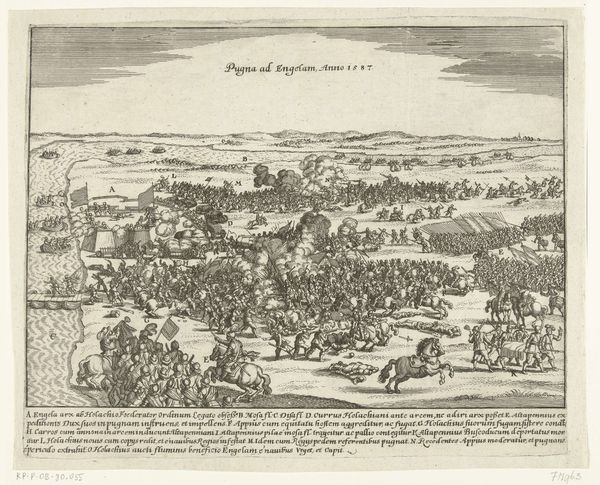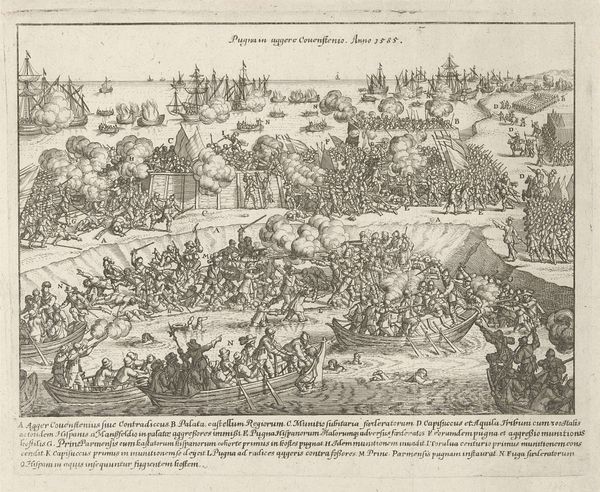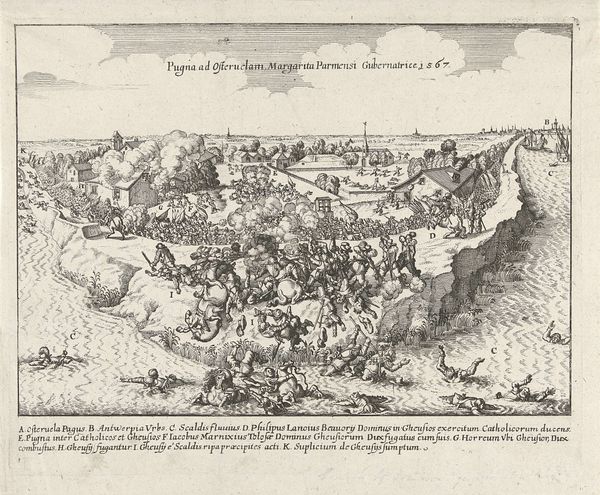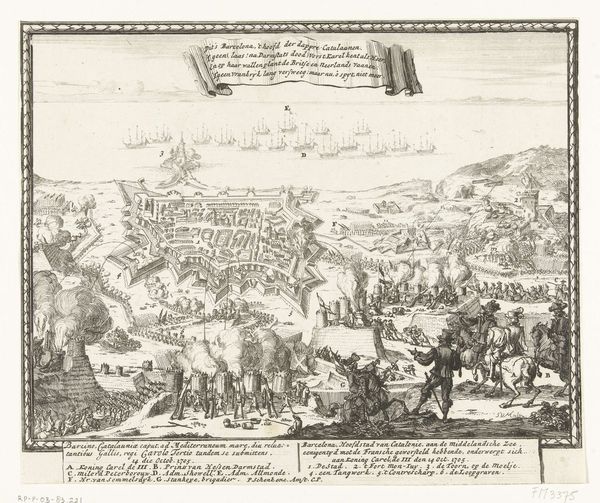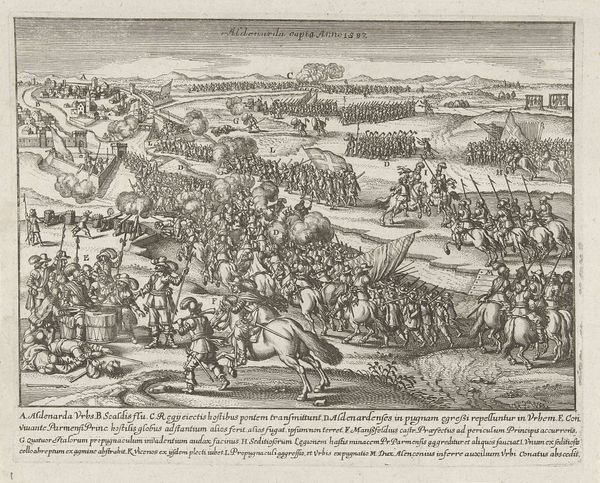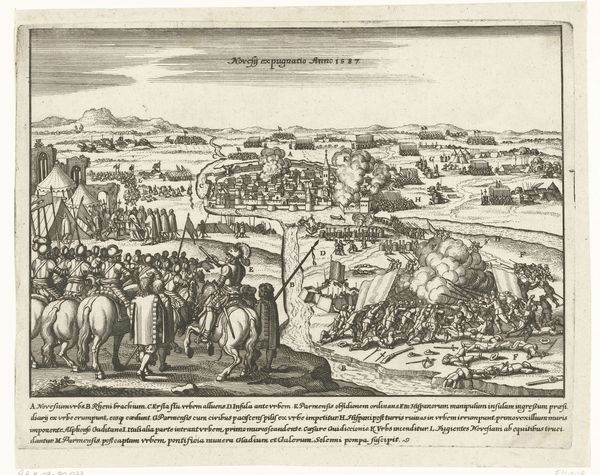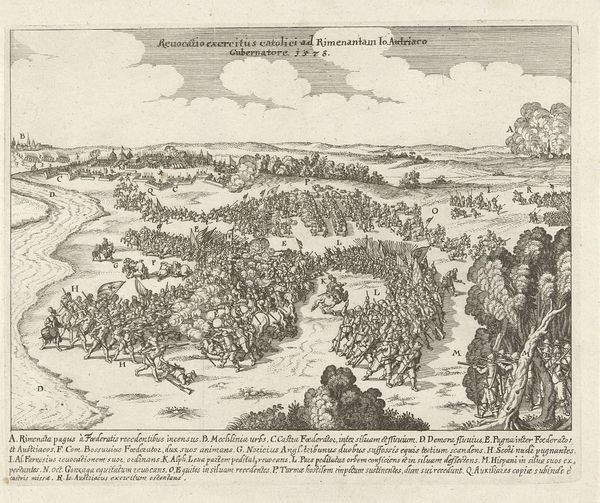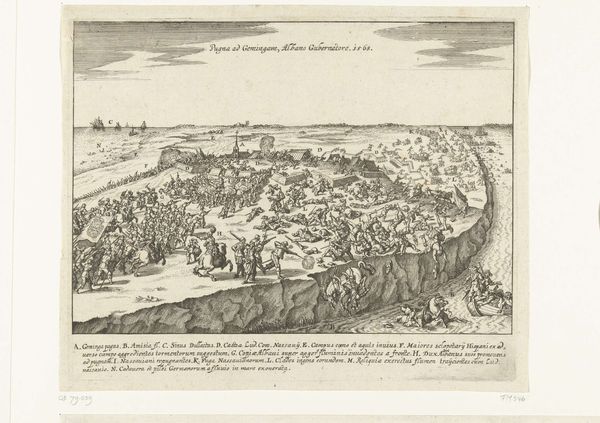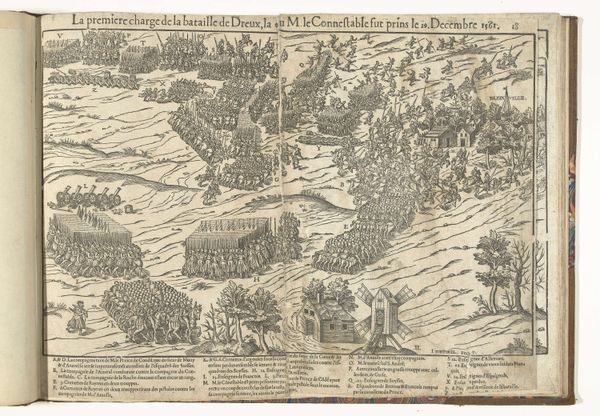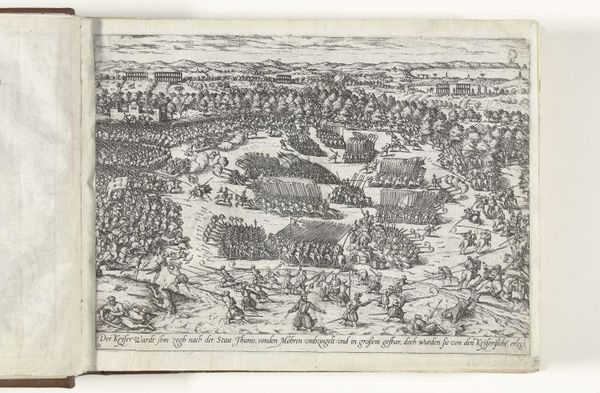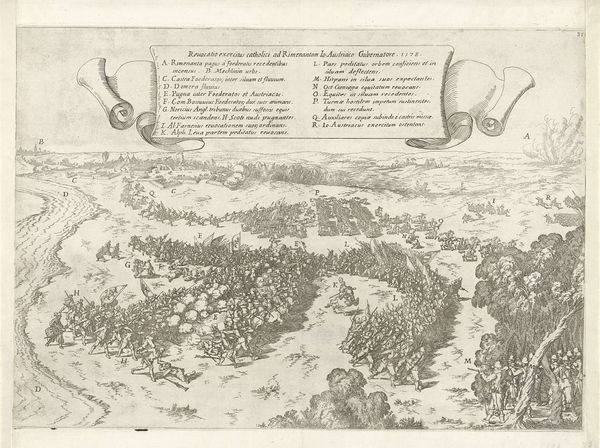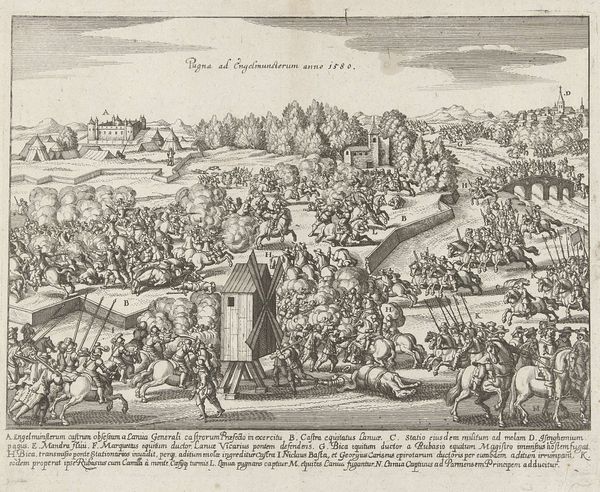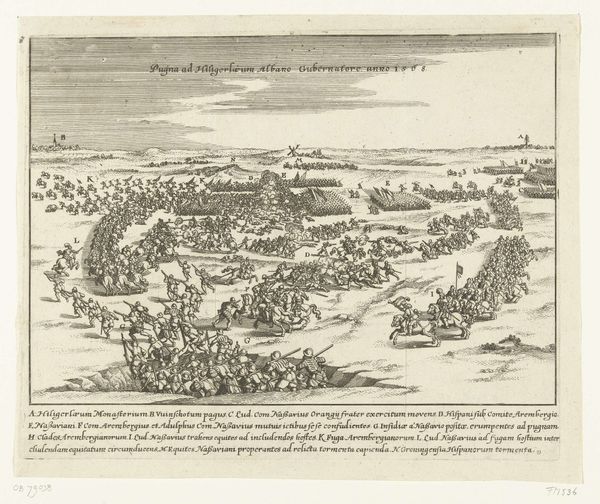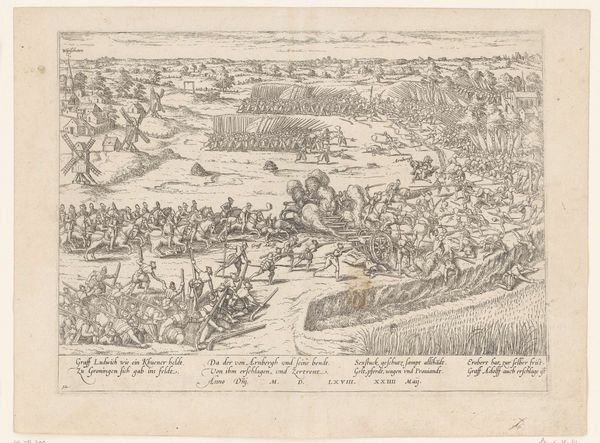
print, etching, engraving
#
medieval
#
baroque
#
dutch-golden-age
# print
#
etching
#
old engraving style
#
landscape
#
geometric
#
history-painting
#
engraving
#
realism
Dimensions: height 221 mm, width 278 mm
Copyright: Rijks Museum: Open Domain
This print, depicting the Battle of Mookerheide, was made in 1574 by an anonymous artist. It’s an etching, a printmaking technique that relies on the corrosive action of acid to create lines on a metal plate, which is then inked and pressed onto paper. Consider the labor involved: from the mining and refining of the metal, to the careful application of acid-resistant varnish and the precise scoring of lines, to the final printing. Each stage demanded skill and precision, indicative of specialized trades and extensive hours to produce the final print. The print’s fine lines and meticulous details showcase the etcher's mastery, but also speak to the wider social context of the time. As a medium, prints were relatively cheap to produce and could be widely distributed, making them ideal for disseminating news and propaganda. In this case, commemorating the conflict, and reminding us of the human cost of war. Paying attention to materials, making, and context helps us to understand the full meaning of artworks like this, challenging our ideas of fine art and craft.
Comments
No comments
Be the first to comment and join the conversation on the ultimate creative platform.
